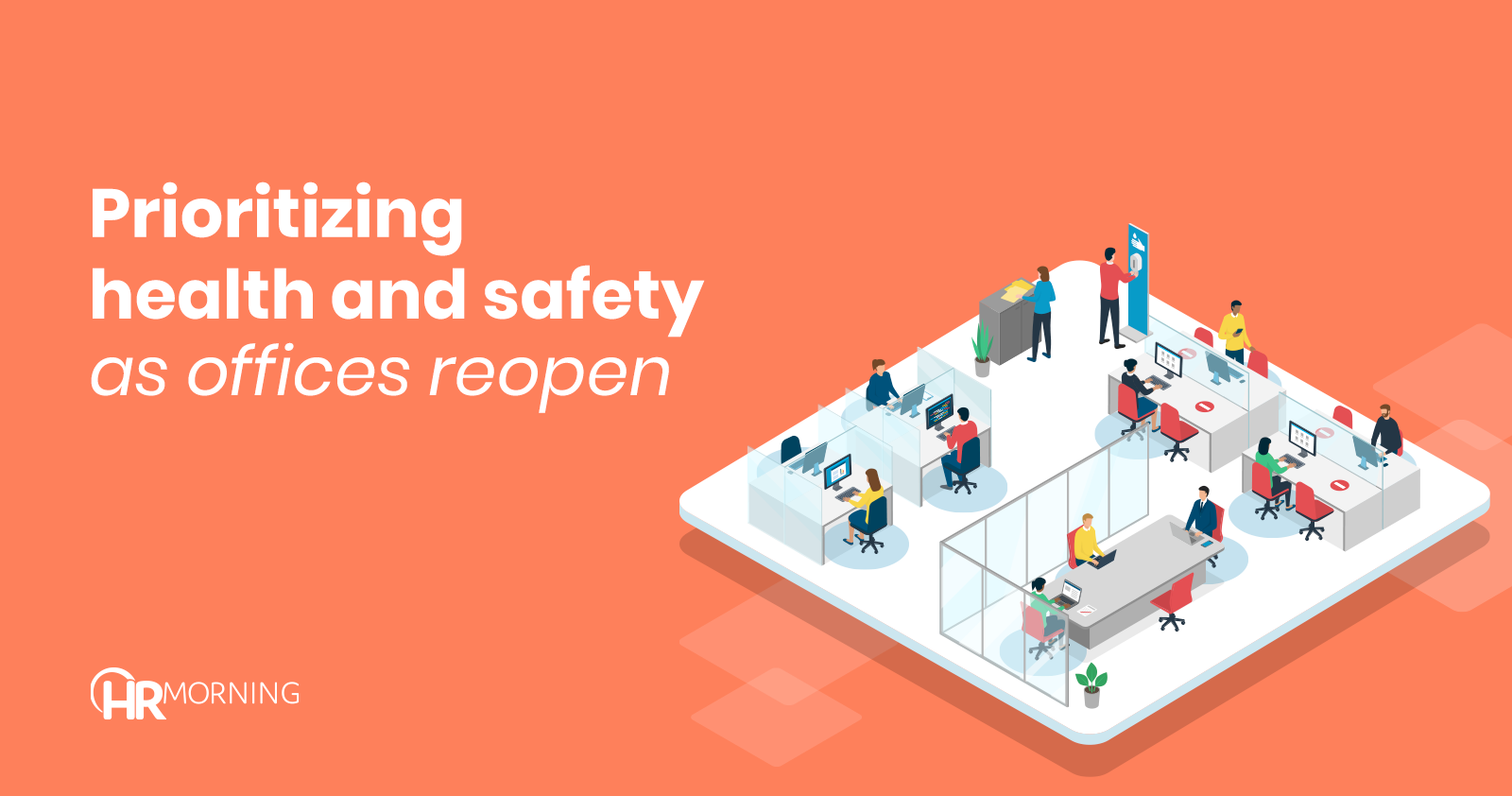While most employers are in various stages of return-to-work plans, OSHA has just issued a 24-page guide for employers that includes recommendations on workplace accommodations, as well as social distancing and face masks.
3-phase approach
OSHA’s Guidance on Returning to Work recommends a three-phase approach:
• Phase 1: Make remote work available if possible. To maintain social distancing, limit the number of people in the workplace. Accommodate higher-risk workers (those over 60, with serious underlying health conditions or who have household members at a higher risk). Limit nonessential business travel.
• Phase 2: Continue to make remote work available. Resume nonessential business travel. Ease restrictions on the number of people in the workplace, but continue social distancing. Keep accommodating high-risk workers.
• Phase 3: Resume unrestricted staffing at the workplace.
OSHA’s goal is to prevent a resurgence of coronavirus cases. This could lead to more administrative headaches for employers: increases in the number of sick employees, enhanced cleaning and disinfection or even a temporary closure of the workplace.
OSHA’s guiding principles
OSHA’s recommendations include the following guiding principles:
• Hazard assessment: Consider how workers might be exposed to the coronavirus while performing their job duties (from other workers, customers, visitors, etc.).
• Hygiene: Encourage hand washing, provide hand sanitizer and identify high-traffic areas for enhanced cleaning and disinfecting.
• Social distancing: Limit occupancy. Post signs reminding workers to keep 6 feet away from others.
• Identification/isolation of sick employees: Establish a protocol for managing people who become ill in the workplace.
• Return to work after exposure: Follow CDC guidelines to allow for 14 days of self-quarantine.
• Protective controls: Use physical barriers, stagger work shifts, replace in-person meetings with videoconferencing and ensure workers wear masks.
• Flexible workplace: Consider new policies on remote work and sick leave.
• Anti-retaliation: Ensure workers are aware no adverse actions will be taken against them for raising workplace safety concerns, including those about the coronavirus.


